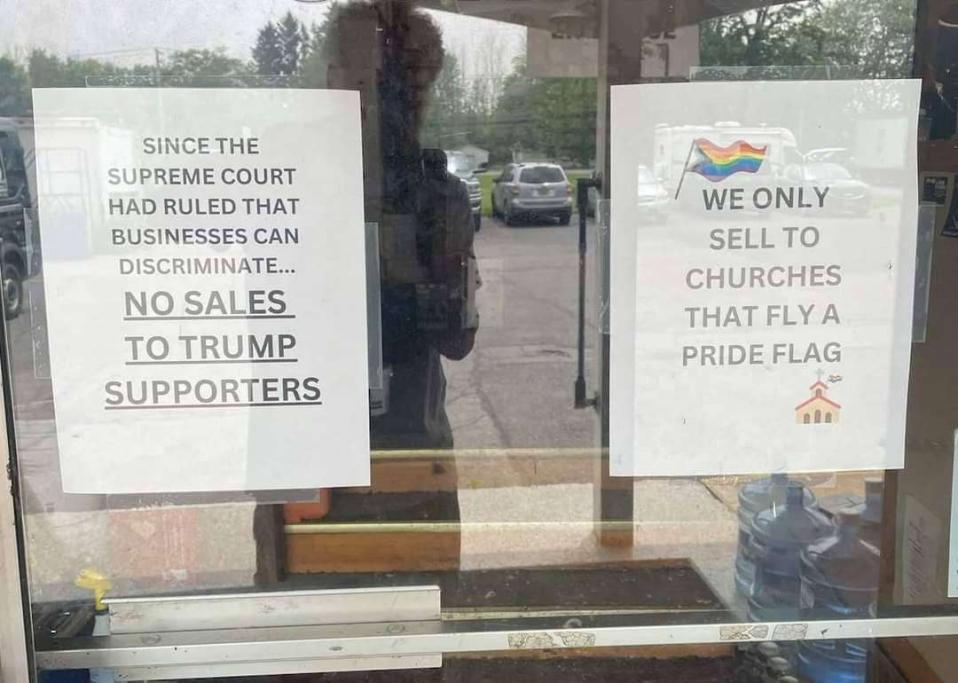Malicious Compliance
People conforming to the letter, but not the spirit, of a request. For now, this includes text posts, images, videos and links. Please ensure that the “malicious compliance” aspect is apparent - if you’re making a text post, be sure to explain this part; if it’s an image/video/link, use the “Body” field to elaborate.
======
-
We ENCOURAGE posts about events that happened to you, or someone you know.
-
We ACCEPT (for now) reposts of good malicious compliance stories (from other platforms) which did not happen to you or someone you knew. Please use a [REPOST] tag in such situations.
-
We DO NOT ALLOW fiction, or posts that break site-wide rules.
======
Also check out the following communities:
!fakehistoryporn@lemmy.world !unethicallifeprotips@lemmy.world
view the rest of the comments

@Alexmitter @minimar The Supreme Court has just ruled that "expressive" businesses can discriminate against their customers. They did not pin down what "expressive" means.
The court opinion is 70 pages long, they define it multiple times. One example is: "All manner of speech—from “pictures, films, paintings, drawings, and engravings,” to “oral utterance and the printed word”—qualify for the First Amendment’s protections; no less can hold true when it comes to speech like Ms. Smith’s conveyed over the Internet"
Essentially it's already been established that the government can't enforce rules on what products someone makes, but can enforce who they sell that product to (not disallowing protected classes). The state of Colorado was arguing that making websites was a standard product that could be modified to be sold to anyone, while ms Smith was arguing that each website was a unique product that had freedom of speech. The only thing the court decided was that websites should be considered speech, so they fell under the same rules that have already applied to paintings and songs, instead of the rules that apply to groceries and car sales
@bric When you talk to a customer to sell them a car that speech is a unique product tailored to the customer
Sure, And the employee has full freedom of speech to say what they want during that sales pitch. They can't be required to say anything they disagree with during the sales pitch. But they are required to sell the car to a gay customer just like they would to a straight customer
@bric You can't sell a car without a sales pitch though
If we're looking at the pitch itself as the product though, then the employee has freedom of speech to control what's in the sales pitch, but not who the sales pitch goes to. The court ruling allows sellers to discriminate the content of their product, not to discriminate the recipient. so they wouldn't have to give some sort of "gay sales pitch", but they would have to give a sales pitch to gay customers.